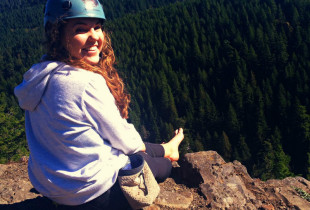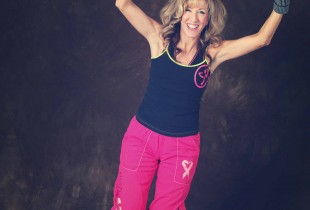Interviewed by Katie Broyles
Shalini Shah is a doula and childbirth educator in New York City. She gives us the insider info on what a doula does and how you can benefit from one, what “the love cocktail” is, and pain management techniques for labor that may surprise you.

1. As such a young woman, what led you to decide to become a doula? I assume that “Doula-ing” wasn’t your major in college.
I’ve always felt a call to serve women in some way, and as I grew older that calling grew with me. I had very little knowledge and exposure to childbirth and birth culture growing up. It wasn’t until a few years ago that I had the good fortune of meeting a wonderful woman who had home births for both her children. I never realized that there were differences in birth experiences. I didn’t know that you had a choice in where you could give birth, that there were different positions you could give birth in, that birth could be such an empowering, life-changing experience. And of course, I had no idea what a doula was… and as soon as I found out, it just clicked for me. Learning about how life changing and empowering this experience can be, learning about myself as a woman, and learning about the capabilities of women has made it my path in life to share this knowledge with others.
2. Do you know a lot of other doulas in their 20s, or is that pretty rare?
I wouldn’t say it’s rare to meet a doula in her 20s, but most of the doulas I know are usually older with children. I think the reason for this is that most people don’t educate themselves on the birth system in the US until experiencing it first-hand. After experiencing birth, they realize what a major, life-changing event it is, how positive or negative a birth experience can be, and how they can help positively influence a laboring woman’s experience. The other doulas in their 20s that I have met are typically activists like me who have by chance learned about the birth system in America and have felt a calling to help improve it.
3. HaveHeart Magazine is all about encouraging women to be comfortable in their own skin regardless of their body type. How do you balance the need to not discourage women’s views of their bodies with the practical demands of pregnancy? For example, how do you deal with a tricky situation like telling an overweight woman that she needs to lose weight for the sake of her baby?
My role as a doula isn’t to tell people how they should live their lives or give medical advice. My job is to help my clients become as informed as possible so they can make the best decisions for themselves and their baby. I trust that women know what works best for their bodies and their lives. I’m sure there are many women who are in a “normal” weight range who could be classified as unhealthy, as well as plenty of “overweight” women who are actually quite healthy. I try not to make judgments on clients based on weight, but instead try to learn and understand their lifestyle choices so I can better serve them. If I have a client who felt she was unhealthy, I help her find solutions that she could integrate into her lifestyle. I feel that self-love and being comfortable in your own skin are incredibly important, especially during labor. Mental blocks can severely inhibit progress in labor just as much as physical issues.
4. What is the most surprising thing you have learned about women’s labor so far?
How absolutely badass women are! Can I say that? I am constantly being amazed by how strong and resilient my clients are. In the midst of chaos they are able to let go of their exhaustion, their fear and their expectations and let their bodies guide them.
5. Do you think natural childbirth is for everyone? What you be inclined to say, barring medical conditions that prevent it, every woman can do it or “has it in them”?
Every woman, pregnancy, and labor are different. I have been to planned gentle c-sections, epidural births, and natural births and thought each of those decisions and experiences were beautiful and the best for the woman, her partner, and her baby. I would never say that a natural childbirth is for everyone, but I do think every woman has the right to be educated on their various birthing options and to have a positive and empowering birthing experience.
6. Would you encourage a woman who claims no interest in natural childbirth to investigate it, and why?
I would encourage women to become educated and informed about birth so they can make the best decisions for themselves, and for their babies. Knowledge is power. I think that women are capable of making the decision that works best for them and knowledge of the birthing system and all their various birth options can only help them make that decision.
7. What is the best pain management technique you’ve seen in action?
I would love to say there is one magic position that works best for laboring women, but in reality it depends on the birthing mom and the situation she is in at that exact moment. I’ve had couples make out for hours and that worked beautifully to provide pain relief. I have also had a woman walking up and down flights of stairs for 2 hours straight moaning at the top of her lungs – deep guttural moans are awesome for pain relief. I do tell all of my clients to get a birthing ball. There are so many wonderful ways it can help. Also, water! Using water to your advantage is also an amazing pain relief technique. I almost always encourage clients to take a bath or stand in the shower and let hot water run on them. There are many studies showing that women who spend some time laboring in water were less likely to need an epidural than women who spent their entire labor out of water.
8. A lot of natural childbirth advocates talk about nearly painless birth and this possibility of remaining preternaturally calm so that labor progresses gently. Is this actually possible?
Yes, natural painless birth is possible. In fact, there are women who have orgasms during labor. That being said, a painless birth rarely occurs without a woman working hard for one. Many women who succeed at having painless births change their entire perspective on birth and the laboring experience. They mentally and physically prepare themselves for the potentially long hours of hard work and for the powerful sensations that will overtake them. They learn about what their body is going through during each stage of labor so they can feel empowered during every moment. Fear is the biggest impediment to a painless childbirth. We are taught from day one to be fearful of the potential pain in labor. We are also taught to be fearful of the unknown, and all the things that could go wrong during labor. Fear is instilled upon us by television shows, movies, friends, and family. Fear stops a person from relaxing. When the mind isn’t relaxed, it becomes difficult for the body to relax and deliver a baby out peacefully. That being said, I truly believe that a woman’s birth experience will be exactly what she needs it to be at that moment in her life.

9. Does being a doula make you want to have kids more, less, the same? Is there something you’ve learned about that you’re really curious to try out?
Being a doula definitely makes me want to have kids more than I ever thought possible. I’m not sure if there is a specific technique I’d like to try because I truly can’t imagine what my labor will be like, but there definitely is something I absolutely excited to experience. The moment a baby is born, there is a flood of hormones released called “the love cocktail” in the new mother’s body that causes the woman to fall in love and bond with her child. I truly feel like the luckiest person in the world to be able to witness women giving birth and cradling their newborns with cries of elation and joy. That is something doulas live for and a moment I personally can’t wait to experience.
10. A lot of doula websites mention that many women can benefit from a doula because they are living far away from their families. The idea (as I understand it) is that they don’t have their tribe of women who are knowledgeable about childbirth around them, and can end up rather isolated through the process. What about a woman who does have her family around? Can she still benefit from a doula, and why?
Yes, absolutely. The doula’s primary focus during women’s pregnancy is education and emotional support. A doula answers questions and leads her client to the resources she is searching for. During labor and delivery, a doula provides constant informational, physical, and emotional support. She makes suggestions about positions during labor, helps you with breathing through contractions, and provides massages and relaxation techniques.
It’s impossible to predict what your labor will be like. How will you respond to the pain? Will you have a quick labor or a lengthy delivery? These are all issues that must be dealt with instantaneously.
A doula is not a replacement for a partner and support people. Having a doula involved in the birthing process enables a laboring woman and her partner to be together, laboring together.There are some labors I have attended with two doulas, one partner, and another family member, and we were all busy every minute of the labor.
A doula is for every woman who wants one, regardless of how she intends to give birth, including those who choose to use epidurals or have planned c-sections. A doula never commands what a woman should do during her birth, but supports her decisions and helps her have the experience she wants.
Shalini can be reached at:
| m: 917.648.7030 | e: shalinidoula@gmail.com
| w: www.shalinishah.com | f: www.facebook.com/shalinidoula



